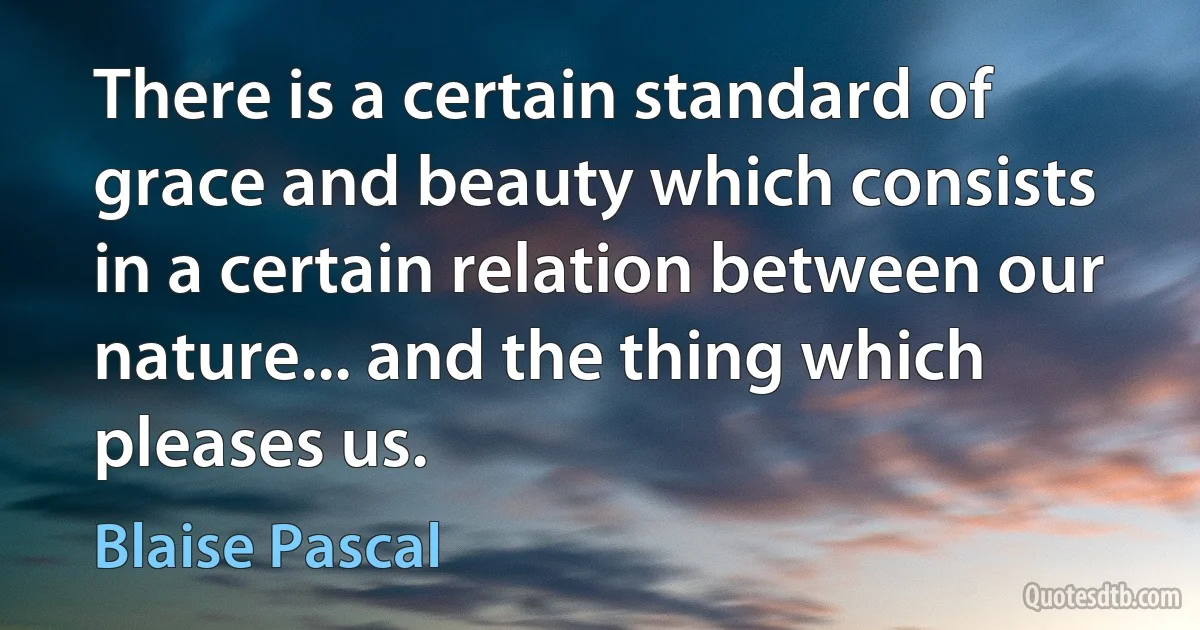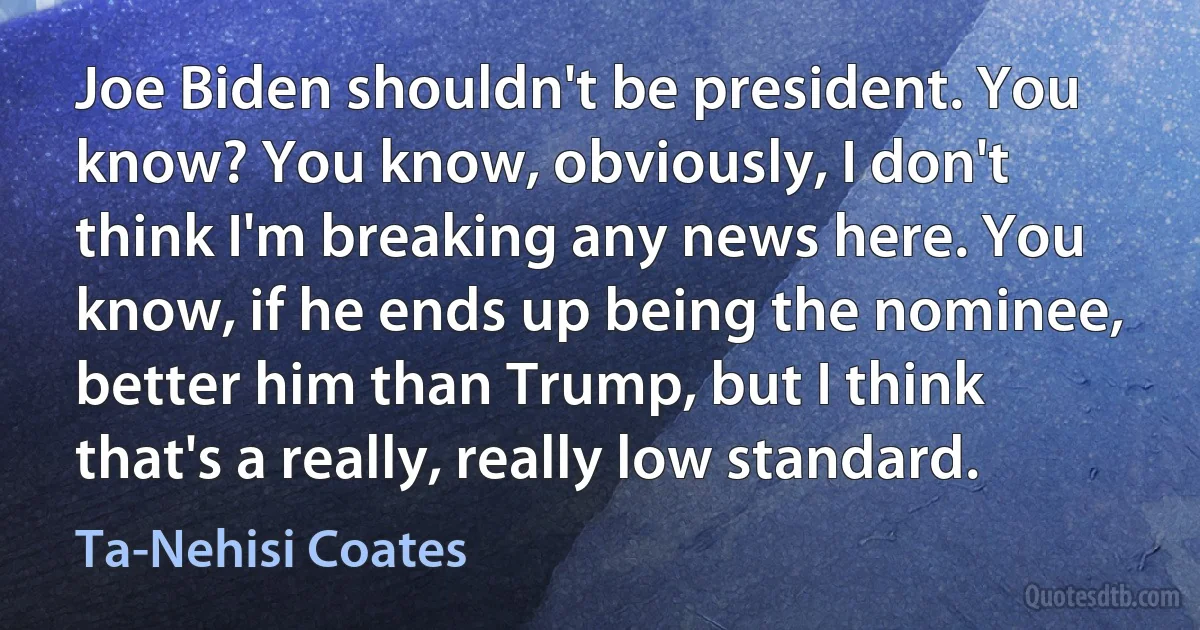Standard Quotes - page 32
At the time, I thought of it this way: it was as if bacteria that used to cause deadly plagues, but had long been considered conquered by modem medicine, had reemerged in a form resistant to all the standard antibiotics. Here's what I wrote in the introduction to the first edition: "So far only a limited number of people have actually fallen prey to the newly incurable strains; but even those of us who have so far been lucky would be foolish not to seek new cures, new prophylactic regimens, whatever it takes, lest we tum out to be the next victims."

Paul Krugman
If Walter Bagehot was right that "one of the greatest pains to human nature is the pain of a new idea,” Ken caused an extraordinary amount of pain. Both in his economic thinking and in his political activities, he was dedicated to resisting, and where possible overturning, what he famously called "conventional wisdom” (one of his many turns of phrase that have since become commonplace locutions). Rejecting the standard economic theory based on small, anonymous households and firms that autonomously engage in perfectly functioning markets, Ken instead saw an economic stage dominated by large, nameable actors: big business, big labor, big government. Sorting out their roles and respective power was central to his analysis, and the continually shifting tensions in the interplay among them-"countervailing power” in another of his deft phrases-was the real story of how an economy behaved.

Amartya Sen
See, if evolution is true, who owns the world? Who makes the rules? How do we decide right from wrong? If man is God, and that's what humanism means, there is no absolute standard. How do you tell right from wrong? I mean, maybe Osama Bin Laden should tell right from wrong for everybody. Maybe congress should decide. Maybe Bill Clinton ought to decide. "Right and wrong? Never heard of that before."

Kent Hovind
The Italian command was, for the most part, not equal to the task of carrying on war in the desert, where the requirement was lightning decision followed by immediate action. The training of the Italian infantryman fell far short of the standard required by modern warfare. ... Particularly harmful was the all pervading differentiation between officer and man.

Erwin Rommel
Let us summarize these three points more concisely:
(a) The rejection of art as a mere emotional, individualistic, and romantic affair.
(b) 'Objective' work, undertaken with the silent hope that the end product will nevertheless eventually be regarded as a work of art.
(c) Consciously goal-directed work in architecture, which will have a concise artistic effect on the basis of well-preparated objective-scientific criteria.
Such an architecture will actively raise the general standard of living. This represents the dialectic of our development process, which purports to arrive at the affirmative by negation - a process similar to melting down old iron and forging it into new steel.

El Lissitsky
Even after proper discount is made for false propaganda, the evidence is indisputable that every invading army perpetrates atrocity, so much so that war may correctly be defined as atrocity. Reference to various standard dictionaries reveals the following definition of atrocity: "A deed of violence or savagery; great cruelty or reckless wickedness; extreme cruelty; enormous wickedness."

Kirby Page
Today, there are still political and social networks that seek to undermine full equality for all Americans. Their messages are spread using the standard tools: prejudice, fear, disdain, misinformation, trivialization, patronizing stereotypes, demonization and even scare-mongering conspiracy theories. While many of the groups within these networks describe themselves as mainstream - and many disagree with one another - they all have helped spread bigoted ideas into American life.

Chip Berlet
To me the entire uselessness of such rules^as practical guides lies in the inherent vagueness of the word "reasonable," the absolute impossibility of finding a definite standard, to be expressed in language, for the fairness and the reason of mankind, even of Judges. The reason and fairness of one man is manifestly no rule for the reason and fairness of another, and it is an awkward, but as far as I see, an inevitable consequence of the rule, that in every case where the decision of a Judge is overruled, who does or does not stop a case on the ground that there is, or is not, reasonable evidence for reasonable |men, those who overrule him say, by implication, that in the case before them, the Judge who is overruled is out of the pale of reasonable men.

John Coleridge, 1st Baron Coleridge
The greatest human evils are not those that individuals perform in private, the tiny transgressions against some arbitrary social standard we call sins. The ultimate evils are the mass murders that occur in revolution and war, the large-scale savageries that arise when one agglomeration of humans tries to dominate another: the deeds of the social group. ...only group efforts can save us from the sporadic insanities of the group.

Howard Bloom
Since some ignorant dupes of these Marxists denounce as "McCarthyist” anyone who points out their ideological inspiration, it deserves to be emphasized that "eminent historians” like Romila Thapar, R. S. Sharma and Irfan Habib are certified as Marxists in standard Marxist sources like Tom Bottomore's Dictionary of Marxist Thought. During the official historians' Ayodhya temple/mosque dispute in 1991, the pro-mosque team's argumentation and several other anti-temple pamphlets were published by the People's Publishing House, a Communist Party outfit. One of the recent textbook innovations most furiously denounced as "saffronization” was the truism that Lenin's armed seizing of power in October/November 1917 was a "coup d'état”. And in early 2003, while they were unchaining all their devils against glasnost, the Marxists ruling West Bengal deleted from a textbook a passage in which Mahatma Gandhi's biographer Louis Fischer called Stalin "at least as ruthless as Hitler.”.

Koenraad Elst
The extreme ignorance and gullibility of the foreign press provides the negationists with a strategic cover. Most English-knowing Indians believe that the Western intelligentsia is more objective and competent, and they keep on believing this even in domains where the West is completely ignorant and incompetent. So the negationists feel supported in the back by an outside world which they can manipulate but which many in India still consider as a standard of truth. If the Hindu leadership had taken the trouble of studying the mental determinants of India's political configuration, it would have blown this cover away by spreading first-hand information to the foreign media, and educating them about the Stalinist-Islamic grip on the Indian establishment.

Koenraad Elst
The Constitution ought to be the standard of construction for the laws, and that wherever there is an evident opposition, the laws ought to give place to the Constitution. But this doctrine is not deducible from any circumstance peculiar to the plan of convention, but from the general theory of a limited Constitution.

Alexander Hamilton
When I was appointed as Russian envoy to Oslo, I realized that I had thereby achieved a victory not only for myself, but for women in general and indeed, a victory over their worst enemy, that is to say, over conventional morality and conservative concepts of marriage. ... What is of a wholly special significance here is that a woman, like myself, who has settled scores with the double standard and who has never concealed it, was accepted into a caste which to this very day staunchly upholds tradition and pseudo-morality. Thus the example of my life can also serve to dispel the old goblin of the double standard also from the lives of other women. And this is a most crucial point of my own existence, which has a certain social-psychological worth and contributes to the liberation struggle of working women.

Alexandra Kollontai



